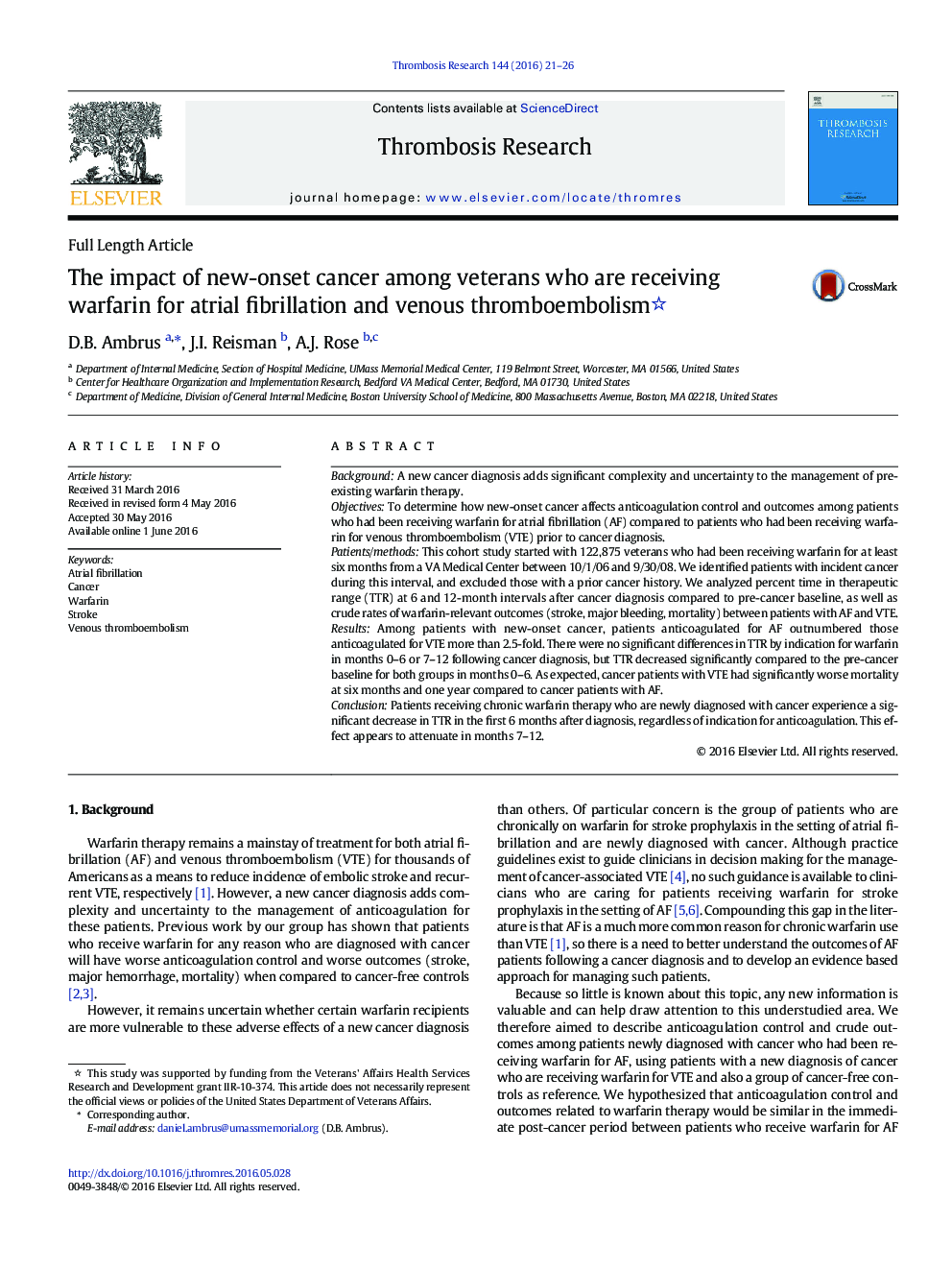| کد مقاله | کد نشریه | سال انتشار | مقاله انگلیسی | نسخه تمام متن |
|---|---|---|---|---|
| 3026823 | 1579199 | 2016 | 6 صفحه PDF | دانلود رایگان |
• We studied a large sample of veterans receiving warfarin and diagnosed with new onset of cancer.
• Subjects experienced significantly worse anticoagulation control after cancer onset.
• Outcomes and warfarin control were poorest in the first 6 months after cancer onset.
• Major bleeding and stroke rates were similar regardless of indication for warfarin.
BackgroundA new cancer diagnosis adds significant complexity and uncertainty to the management of pre-existing warfarin therapy.ObjectivesTo determine how new-onset cancer affects anticoagulation control and outcomes among patients who had been receiving warfarin for atrial fibrillation (AF) compared to patients who had been receiving warfarin for venous thromboembolism (VTE) prior to cancer diagnosis.Patients/methodsThis cohort study started with 122,875 veterans who had been receiving warfarin for at least six months from a VA Medical Center between 10/1/06 and 9/30/08. We identified patients with incident cancer during this interval, and excluded those with a prior cancer history. We analyzed percent time in therapeutic range (TTR) at 6 and 12-month intervals after cancer diagnosis compared to pre-cancer baseline, as well as crude rates of warfarin-relevant outcomes (stroke, major bleeding, mortality) between patients with AF and VTE.ResultsAmong patients with new-onset cancer, patients anticoagulated for AF outnumbered those anticoagulated for VTE more than 2.5-fold. There were no significant differences in TTR by indication for warfarin in months 0–6 or 7–12 following cancer diagnosis, but TTR decreased significantly compared to the pre-cancer baseline for both groups in months 0–6. As expected, cancer patients with VTE had significantly worse mortality at six months and one year compared to cancer patients with AF.ConclusionPatients receiving chronic warfarin therapy who are newly diagnosed with cancer experience a significant decrease in TTR in the first 6 months after diagnosis, regardless of indication for anticoagulation. This effect appears to attenuate in months 7–12.
Journal: Thrombosis Research - Volume 144, August 2016, Pages 21–26
